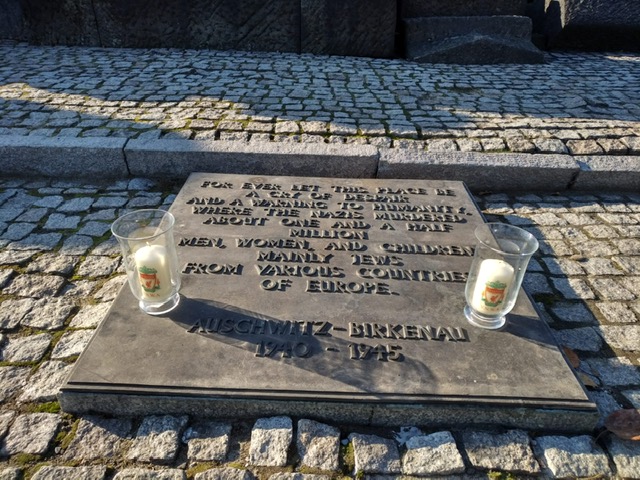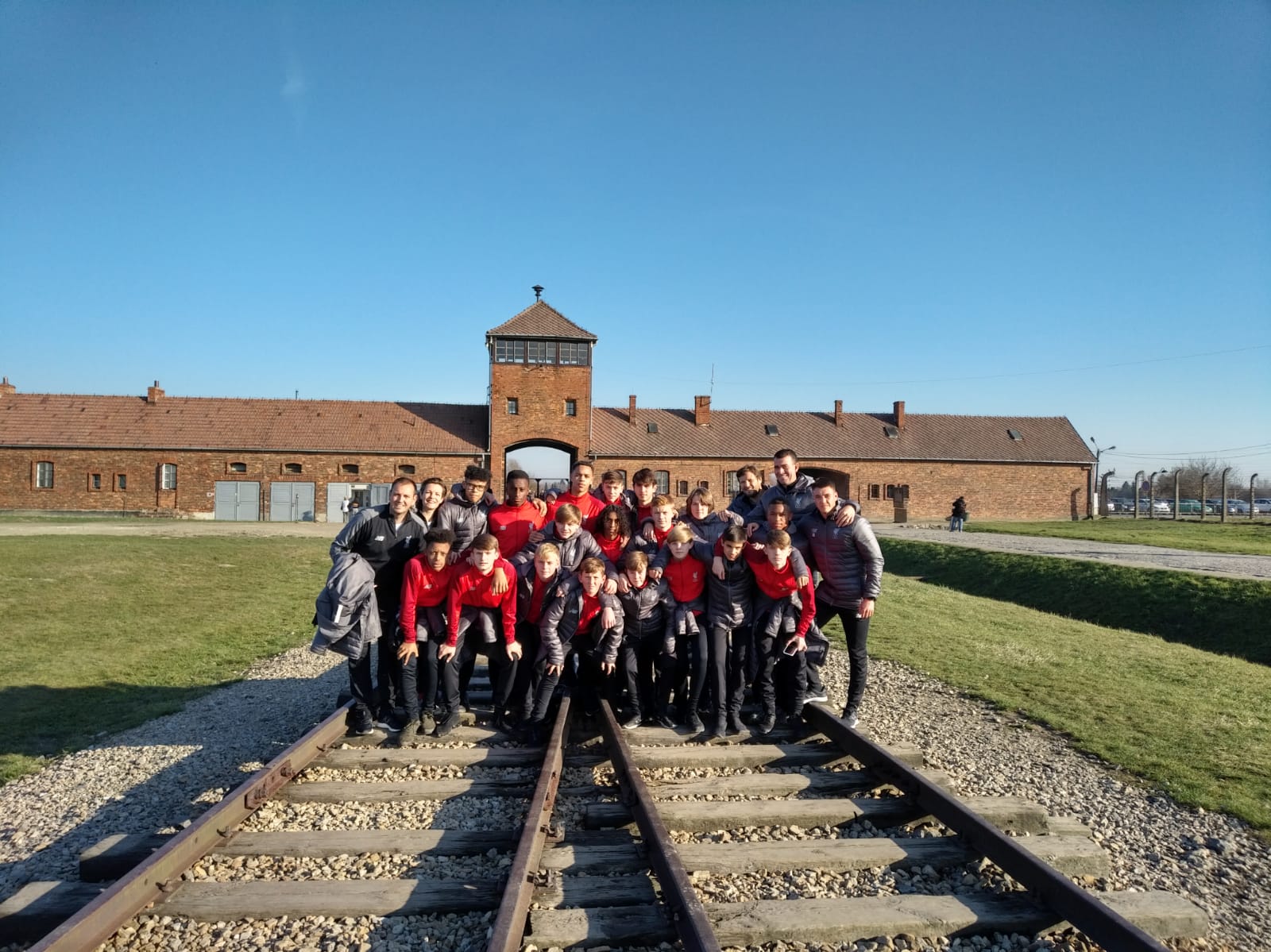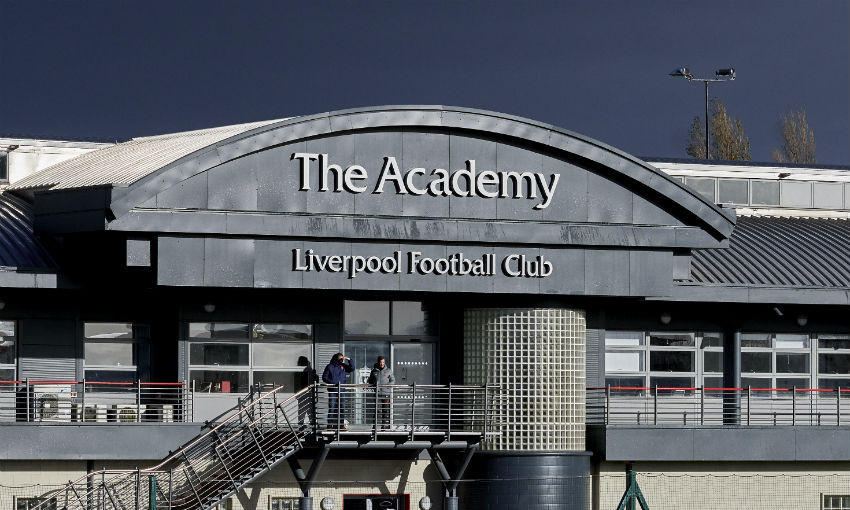Academy marks Holocaust Memorial Day as players remember Auschwitz visit
Liverpool FC's Academy marked Holocaust Memorial Day by hearing the personal story of a Holocaust survivor whose family was devastated by the Nazis.
Joanna Millan spoke with players from the club’s U18s group about how her family life in Berlin as a young child came under attack as Jews became targets for persecution.
She has spent many years researching what happened to her family and how she came to end up living in England.
Joanna discovered her grandmother was deported from Berlin and murdered in the gas chambers at Auschwitz-Birkenau.
Her father fought for Germany as a soldier during the First World War before being imprisoned by the Russians on the eastern front. He later returned to Germany, where he met Joanna’s mother and they were married.
Joanna told the Academy players how her father was forced to work on the streets wearing the Star of David, which identified him as a Jew. One day he simply never returned home.
He had been taken by the Nazis and sent on a transport train to Auschwitz, where he too was murdered in the gas chambers on his arrival in February 1943. Joanna, who was just six months old, explained that up to 2,000 people could be killed at a time.
Joanna – whose birth name was Bela Rosenthal – was taken with her mother to a different camp just a few months later.
At Theresienstadt camp, north of Prague, her mother died of tuberculosis and she was left an orphan at just 18 months old.
Bela was one of six orphans in the camp who were kept alive by kitchen workers feeding them small scraps of food.
Eventually in May 1945, the camp was liberated by the Soviets and three months later Bela was one of 300 children accepted by the UK, beginning life in a children’s home in the Lake District.
She was later adopted by a childless Jewish couple who changed her name and took her to live in London.
Her research has helped her piece together the story of her family as well as discovering relatives all around the world.
Phil Roscoe, LFC’s Academy player care manager, said: “Our Academy visits to Auschwitz over the years have always left a deep impression on the players and staff.
“In normal times we would have welcomed Joanna to Kirkby but her virtual talk worked brilliantly and we thank her for sharing the often harrowing story of her family.”
Karen Pollock CBE, chief executive of the Holocaust Educational Trust, said: “Football reaches tens of millions across the world every single day.
“The beautiful game is a shining example of the good that sport can do and I am delighted that Liverpool FC is leading the way to mark Holocaust Memorial Day.
“Together, we will ensure that people know what happened in the Holocaust, the dangers of unchecked hate, and together help shape a better future.”

Tom Hill, LFC U18s midfielder
“I think I was 15 when we went to Auschwitz. There were around 20 of us on the trip.
“We had already had a talk with a survivor before we went over but I was still pretty unsure about what we were going to see. We didn’t really learn much in school about the Holocaust so going over there was something completely new.
“After the talk we had I was interested to go to see what it was like there and the situations people were put in.
“We had a guide who took us round. The first place they take you is the big sign with ‘Auschwitz’ on it which people saw when they arrived. You put on headphones to listen to a recording so it’s very quiet around the place and a little eerie.
“They take you in around all the bedrooms where people used to stay and they show you this room where there is lots of hair where they used to shave people’s hair off.
“The train tracks take you up to where the gas chambers were. They’re all rubble now because they were blown up after what happened.
“There was a big family there who go all the time singing because their family went through the Holocaust and you just wonder what they must have gone through.
“Sometimes we visit countries and you don’t really remember what went on or what happened there.
“At Auschwitz there’s stuff that you don’t forget, it stays in your mind forever because it is so crazy to see what happened there and how sad it was.”

Lee Jonas, LFC U18s defender
“I think I was 16 when we went to Auschwitz. We flew from Manchester and played in a tournament when we were over there.
“The day before we went we had a talk with a survivor and we’d touched on the Holocaust in school but I still felt a bit blind going over. They only touch on the basics in school and going over you got so much more information and understand it more.
“I was quite nervous to go because I didn’t know how to act or how to feel around the place.
“When we were there everywhere was quiet and very respectful.
“One thing that touched me was when you saw all the children’s shoes in a little room. It was very disturbing because they all had numbers on rather than names, they were treating them as numbers not as human beings.
“We could feel the pain and everyone who has been there will come out changed.
“It’s a place that will always stay with you for the rest of your life.”



